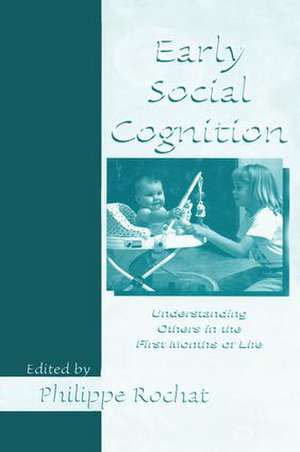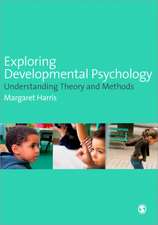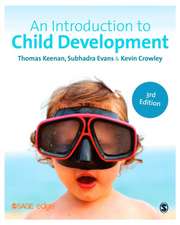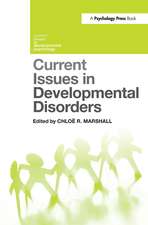Early Social Cognition: Understanding Others in the First Months of Life
Editat de Philippe Rochaten Limba Engleză Paperback – 12 aug 2014
The book is divided into four parts. Part I deals with the nature and development of social cognition in infancy. Each contribution provides a different view of the important features of social cognition in the first months of life. Part II presents recent empirical findings on the developing ability by young infants to detect whether caretakers and social partners are attentive and responsive to their own behavior in social exchanges. Part III focuses on the early development of infants' ability to monitor others in their action, their gazing, their animacy, and their emotion. Part IV offers a commentary on the contributions as a whole, discussing the basic theoretical assumptions guiding current research on early social cognition. The author identifies the conceptual strengths and weaknesses of the work presented and suggests interesting avenues for future research.
Preț: 490.25 lei
Nou
Puncte Express: 735
Preț estimativ în valută:
93.81€ • 98.21$ • 77.62£
93.81€ • 98.21$ • 77.62£
Carte tipărită la comandă
Livrare economică 05-19 aprilie
Preluare comenzi: 021 569.72.76
Specificații
ISBN-13: 9781138003002
ISBN-10: 113800300X
Pagini: 352
Dimensiuni: 152 x 229 x 20 mm
Greutate: 0.48 kg
Ediția:1
Editura: Taylor & Francis
Colecția Psychology Press
Locul publicării:Oxford, United Kingdom
ISBN-10: 113800300X
Pagini: 352
Dimensiuni: 152 x 229 x 20 mm
Greutate: 0.48 kg
Ediția:1
Editura: Taylor & Francis
Colecția Psychology Press
Locul publicării:Oxford, United Kingdom
Public țintă
ProfessionalCuprins
Contents: Preface. Part I: Origins of Social Cognition. P. Rochat, T. Striano, Social-Cognitive Development in the First Year. E.M. Blass, The Ontogeny of Human Infant Face Recognition: Orogustatory, Visual, and Social Influences. D.N. Stern, Vitality Contours: The Temporal Contour of Feelings as a Basic Unit for Constructing the Infant's Social Experience. M. Lewis, Social Cognition and the Self. Part II: Early Sensitivity to Social Contingencies. G. Gergely, J.S. Watson, Early Socio-Emotional Development: Contingency Perception and the Social-Biofeedback Model. A.E. Bigelow, Infants' Sensitivity to Imperfect Contingency in Social Interaction. D. Muir, S. Hains, Young Infants' Perception of Adult Intentionality: Adult Contingency and Eye Direction. J. Nadel, H. Tremblay-Leveau, Early Perception of Social Contingencies and Interpersonal Intentionality: Dyadic and Triadic Paradigms. Part III: Early Monitoring of Others. D.A. Baldwin, J.A. Baird, Action Analysis: A Gateway to Intentional Inference. C. Moore, Gaze Following and the Control of Attention. D. Poulin-Dubois, Infants' Distinction Between Animate and Inanimate Objects: The Origins of Naive Psychology. L.B. Adamson, C.L. Russell, Emotion Regulation and the Emergence of Joint Attention. Part IV: Commentary. M. Tomasello, Social Cognition Before the Revolution.
Recenzii
"I used portions of this book successfully in courses on the development of social cognition that included both advanced undergraduate students and graduate students. The students found the readings engaging. More importantly, the chapters left the students not with the feeling that everything interesting has been done, but rather with the feeling that there [is] much left to figure out. Inspiring students is certainly an important pedagogical goal, and my students and I found this book generative."
—Infant and Child Development
—Infant and Child Development
Descriere
This volume explores the development as early as infancy of social cognitive abilities, including prelinguistic communicative and monitoring abilities hitherto only suspected. For developmental psychologists and early childhood educators.














